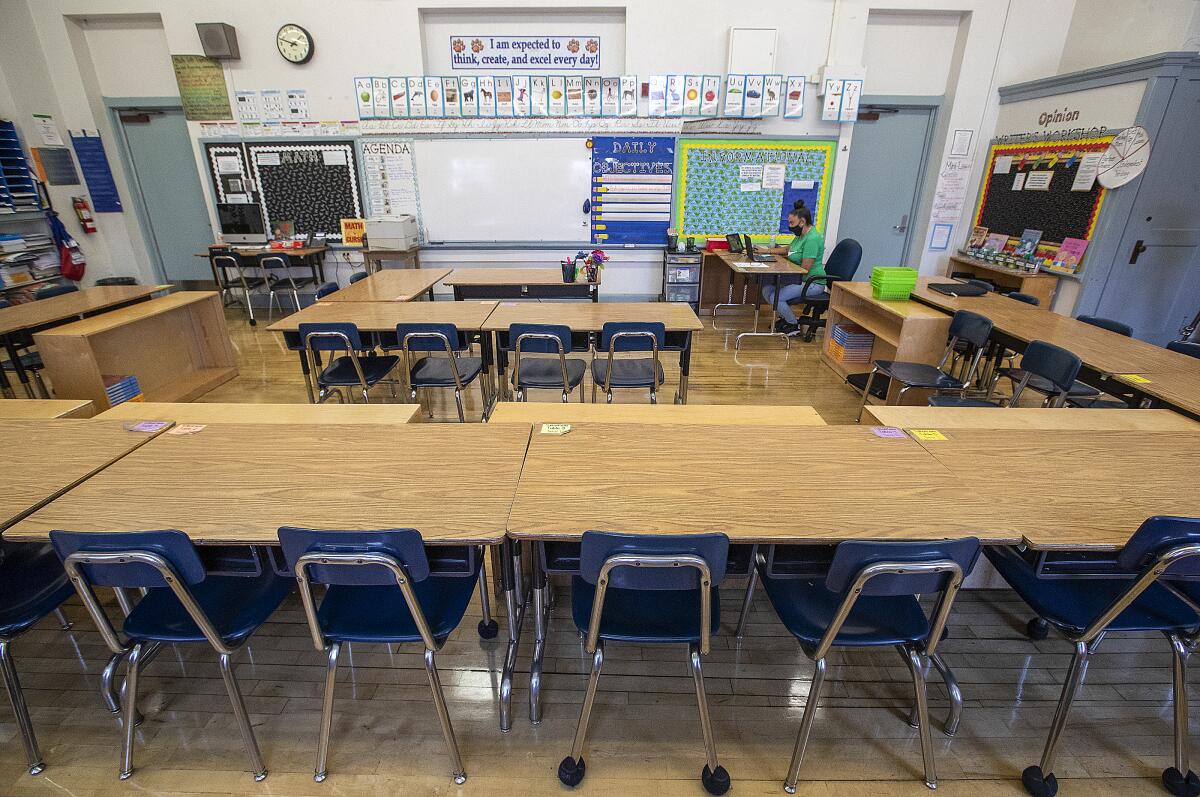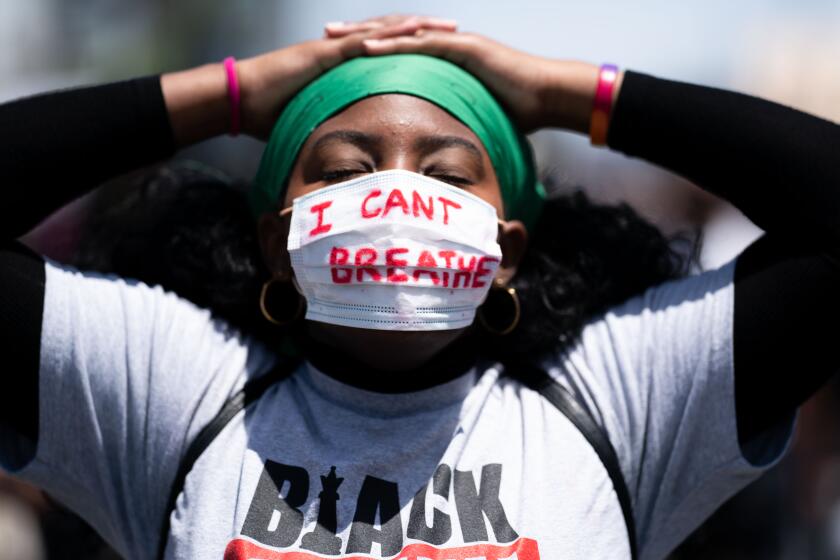I pushed my kids to succeed academically to escape racism. But it doesn’t work that way

- Share via
Moms everywhere are suffering from burnout. But Black mom burnout is different. As a Black mother to two teenage sons and a toddler daughter, I find myself wondering: Will my children be perceived as a threat and cut down in their prime because of their race? Will they miss out because they’re invisible to whoever is passing out the opportunities? Do they have to be perceived as perfect to get any chance to seize their dreams?
Many people of color often turn to the one tool we have in our own shed — the instinct to try to outwork any negative perceptions of us, to tackle the questions that haunt us like the spirits of our ancestors. We’re taught to overwork to prove ourselves beyond the reach of racism and to render racist stereotypes unbelievable or even laughable.
But is this tendency to overwork — and our tendency to encourage our children to do the same — an attempt to outrun systemic issues beyond our control?
Growing up in Tennessee, I was taught working hard was the key to everything — happiness, upward mobility and rising above racism in the South. And while I consider my work ethic one of my greatest gifts, it seems the neat equation of “racism + hard work = less discrimination” doesn’t always add up.
Those likely to benefit from racial inequality in America may be willfully ignorant about its persistence. Hard data may make them face hard truths.
From housework and yard work to school and even church, anywhere that I was willing to put in extra effort, I was praised. I went to a grueling academic magnet high school. In my junior year, I would often come home from school, take a “nap” until about 11 p.m., then work from midnight until 7 a.m. The kids from my high school were applying to rigorous college programs, and I believed this unsustainable pace was the key to unlocking admittance into the school of my choice. But more than this, I began to see this ability to work hard as a badge of honor.
I traded working hard in school settings for working hard to make a name for myself in my career. When I married and had my sons in my late 20s, the effects of this programming on my early parenting were hard to deny.
While I never said it overtly, my actions told the story. The Mandarin immersion program for both boys starting in pre-K. The piano lessons starting at age 4. The summer reading, writing and math workbooks — always one grade level ahead. I subconsciously thought that if my sons were exceptional, life might be better for them in the racist world.
When the pandemic hit, my sons completed most of middle school virtually. At home, they had a front-row seat to my overworking. When intense burnout cost me my health, they held up a mirror to my insanity and encouraged me to focus more on the family and rest. I realized the programming that had been driving me to achieve was beginning to cost me what mattered most.
After barely surviving the pandemic with my kids’ and my sanity intact, I decided to take a different route when it came time for my sons to apply to high schools. I intentionally avoided the notorious pressure-cooker schools. Before I shifted my ideas about working hard for the sake of it, those schools would have been at the top of my list. Instead, we looked for more supportive environments: schools that prioritized the arts, students’ sense of self and their mental health as highly as standardized test scores and GPAs.
You have to believe in the possibility of a just America in order to feel betrayed by the unjust one.
“Work twice as hard to get half as much” was the mantra many of us were raised on, but it is considered by most Black moms today to be played-out advice from our parents’ generation. Despite that, racism and its effects haven’t expired, and in many ways, they’ve been given new life in this era.
But to what degree do we still need to perform and calculate our role within these racist structures, and prepare our children to compete on a playing field that is by no means level?
As Black people, we know that our kids aren’t allowed to do what the white kids do. If your Black child has mostly white teachers or attends a majority white school or has a predominately white social group, you teach them this rule so they will behave accordingly.
I often wonder if the consequences of not overworking may one day prove too costly for my Black children. I wonder, will a B average instead of an A average cost them a plum internship later? I wonder if they’ll fall behind in their careers if they forgo staying late in order to prioritize their health and families.
I don’t want my children working to prove their worth and value as human beings in the same way I felt like I had to. I dream that they will be able to exist, create and live lives of abundance as Black people. I feel like their ancestors — enslaved Blacks in the agricultural South — would be proud of me for that choice.
Maybe it doesn’t have to be so hard. Maybe we can achieve because we rest. This is a lesson I am still learning, but admittedly it’s tough. Several decades’ worth of programming have a strong hold.
Amanda Miller Littlejohn is a writer living in Washington, D.C. @amandamogul
More to Read
A cure for the common opinion
Get thought-provoking perspectives with our weekly newsletter.
You may occasionally receive promotional content from the Los Angeles Times.











